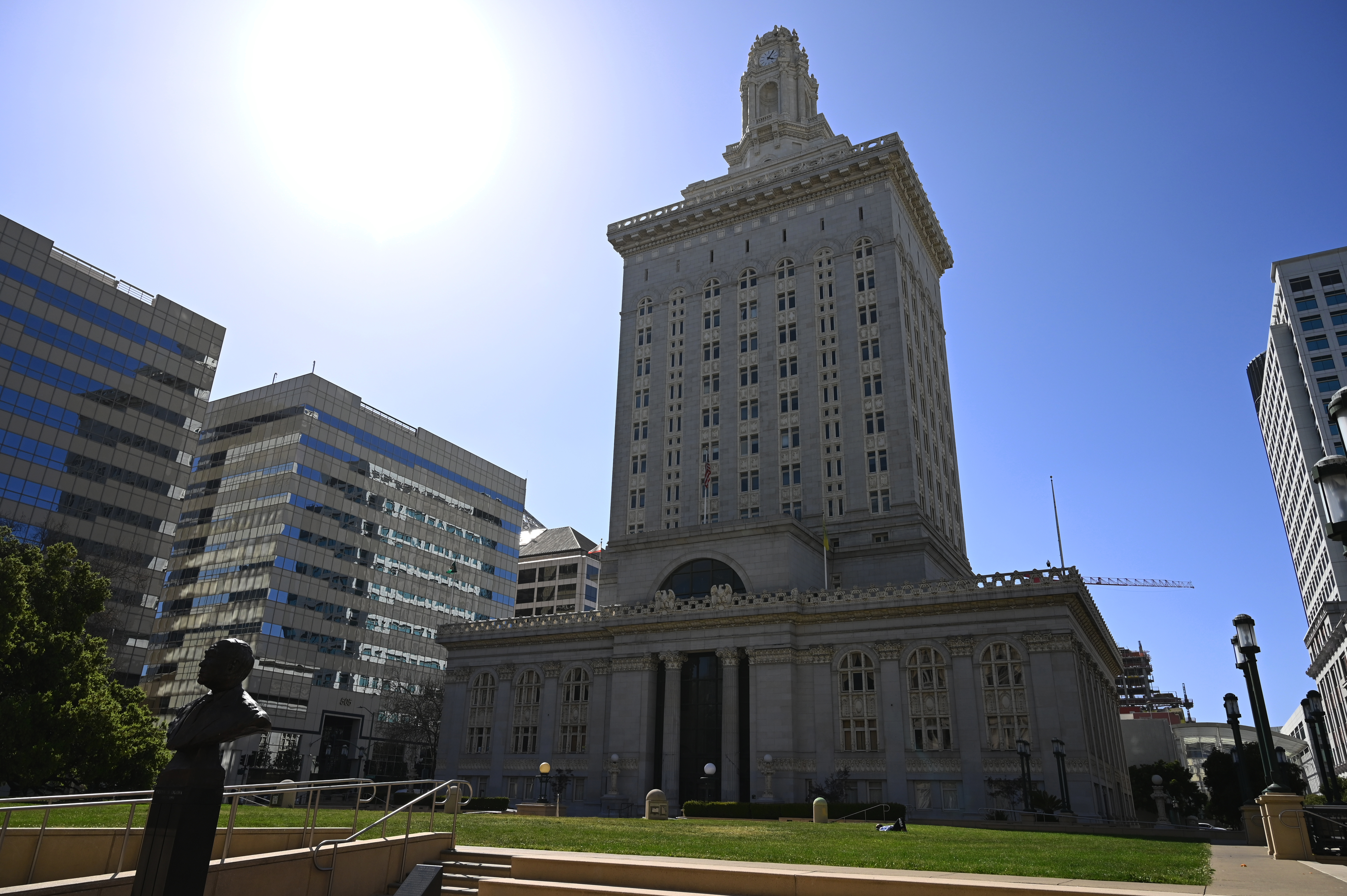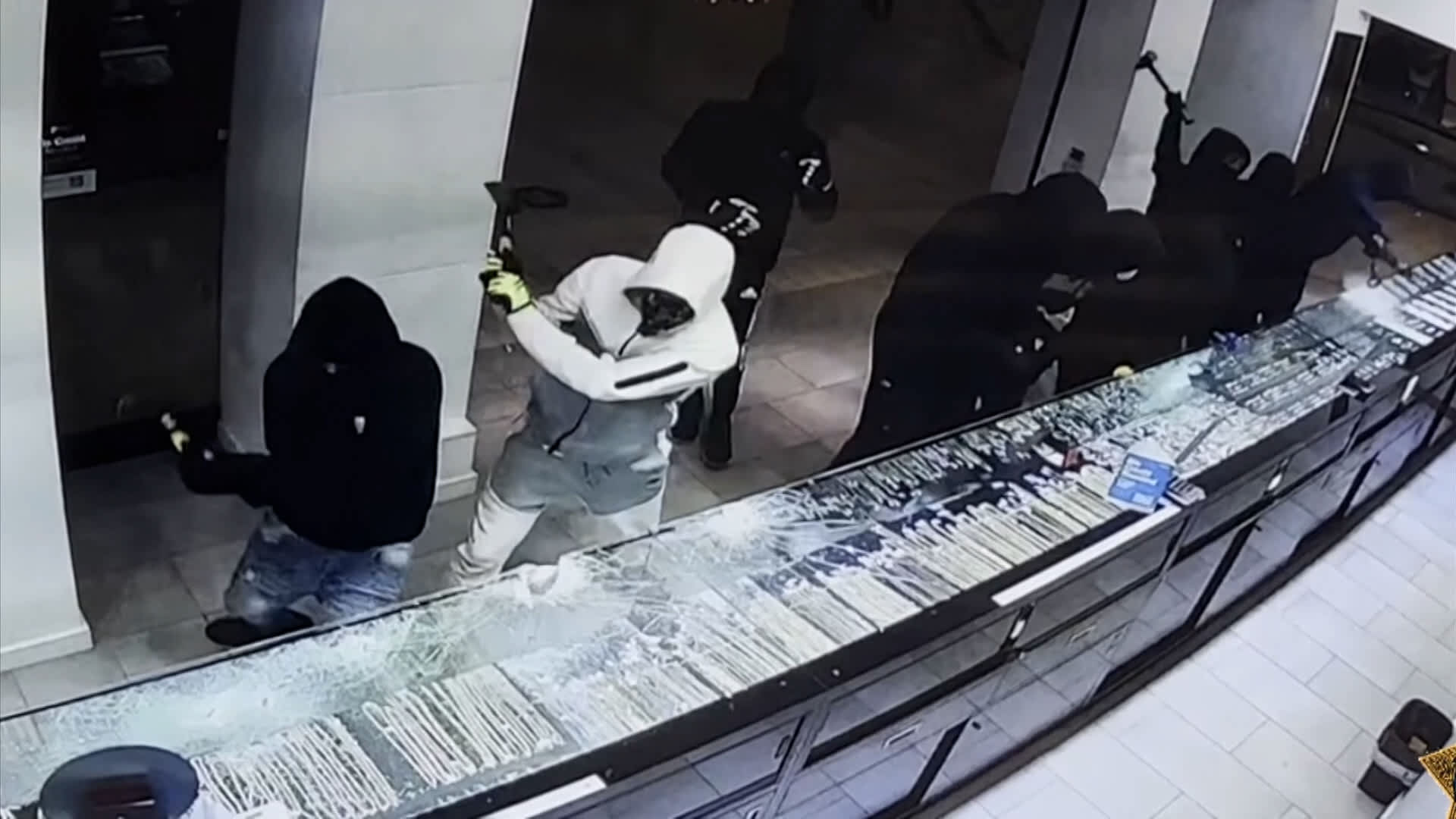The city of Vallejo was turned down by the state for a grant request to tackle organized retail and vehicle theft despite many other Bay Area cities being awarded millions of dollars, City Manager Mike Malone said Thursday. Pete Suratos reports.
The city of Vallejo was turned down by the state for a grant request to tackle organized retail and vehicle theft despite many other Bay Area cities being awarded millions of dollars, City Manager Mike Malone said Thursday.
The Organized Retail Theft Prevention Grant Program was established after the passing of California's Budget Act of 2022 and is a competitive grant for police and sheriff departments to help support preventing and responding to the problem.
"The City of Vallejo applied for the State grant but unfortunately we received notice that the City was disqualified from the process," said Malone in a statement.
Malone said that the city was turned down because it had requested too much money for an evaluator to oversee the project.
Generally speaking, organized retail theft is a criminal enterprise involving multiple suspects who converge on a store en masse and steal products or gift cards. In recent years, groups of individuals have become more brazen and will enter a store and "smash and grab" products to then fence or sell.
San Francisco has gained national attention for the problem. In 2021, groups of thieves descended on Union Square, ransacking at least 11 stores such as Louis Vuitton, Burberry and Bloomingdales. The city was recently awarded $15 million from the grant program.
Vallejo definitely has a problem with retail theft, according to police spokesperson Sgt. Rashad Hollis, but other than the looting that occurred in 2020 during George Floyd protests, the city has not seen "flash mobs" of thieves entering stores, he said.
But retail theft is indeed a big problem, Hollis said.
"Our retail stores get hit tremendously," he said, adding that the thefts are often organized "in the sense that multiple players conspire to carry out crimes against these businesses and do so effectively."
Get a weekly recap of the latest San Francisco Bay Area housing news. Sign up for NBC Bay Area’s Housing Deconstructed newsletter.
Vehicle theft is also a "massive" problem in Vallejo, according to Hollis, and the grant program could have helped with that, he said.
According to Vallejo police statistics, between 2017 and 2021, there were an average of 1,333 auto thefts per year, much higher than that of residential or commercial theft. A person was recently killed by a suspect fleeing police in a stolen vehicle and the city has installed license plate readers to tackle the problem.
In the Police Department's most recent crime stats posted Wednesday, vehicle thefts are up 15 percent over last year, with 809 so far in 2023. Commercial burglary is also up 3 percent, with 534 cases so far this year.
Needless to say, crime in Vallejo continues to be a problem and the City Council declared a state of emergency in July regarding its police staffing shortage.
Due to the lack of officers, the Police Department held a town hall last week to announce that it will no longer respond to all alarm calls unless they are "verified," meaning that there is demonstrable evidence that a break-in is occurring. Of all the alarm calls they answer, over 98 percent of them are "trigger calls" about false alarms. That adds up to 10,509 false alarm calls between 2020 and 2022, according to Hollis.
A retired woman at the town hall said that she was leaving Vallejo because the crime was so bad. She said she had to sleep in her kitchen one night because of the gunplay in front of her house.
Malone said he was responding to the community's concern about missing out on the grant funds to fight crime.
“Thank you for understanding and we share the community's disappointment," he said, adding that the city will "ask if there is any way" the state can reconsider its opinion and allow Vallejo to resubmit an application.
Vallejo isn't the only city that is disappointed about not receiving the funding. In Oakland, Mayor Sheng Thao is getting heat for the city missing the application deadline for the grants.
Oakland City Administrator Jestin Johnson said that his staff identified the state grant opportunity and put together an application.
"Oakland Police Department and the community partners timely provided their material. Unfortunately, the Economic & Workforce Development Department did not timely complete the submission," Johnson said. "Obviously, this outcome is unacceptable."
Other cities in the Bay Area have been granted anywhere from $400,000 to $15 million from the grants, which has meted out $242,250,000 across the state. Cities receiving grant money in the Bay Area include over $8 million in Daly City, nearly $2.5 million in Fremont, nearly $1 million in Newark, over $5 million in Palo Alto, nearly $8.5 million in San Jose, $15 million in San Mateo, over $5.5 million in San Ramon, over $550,000 in Santa Rosa, nearly $4.5 million in Vacaville, and nearly $12 million in Santa Clara County.



